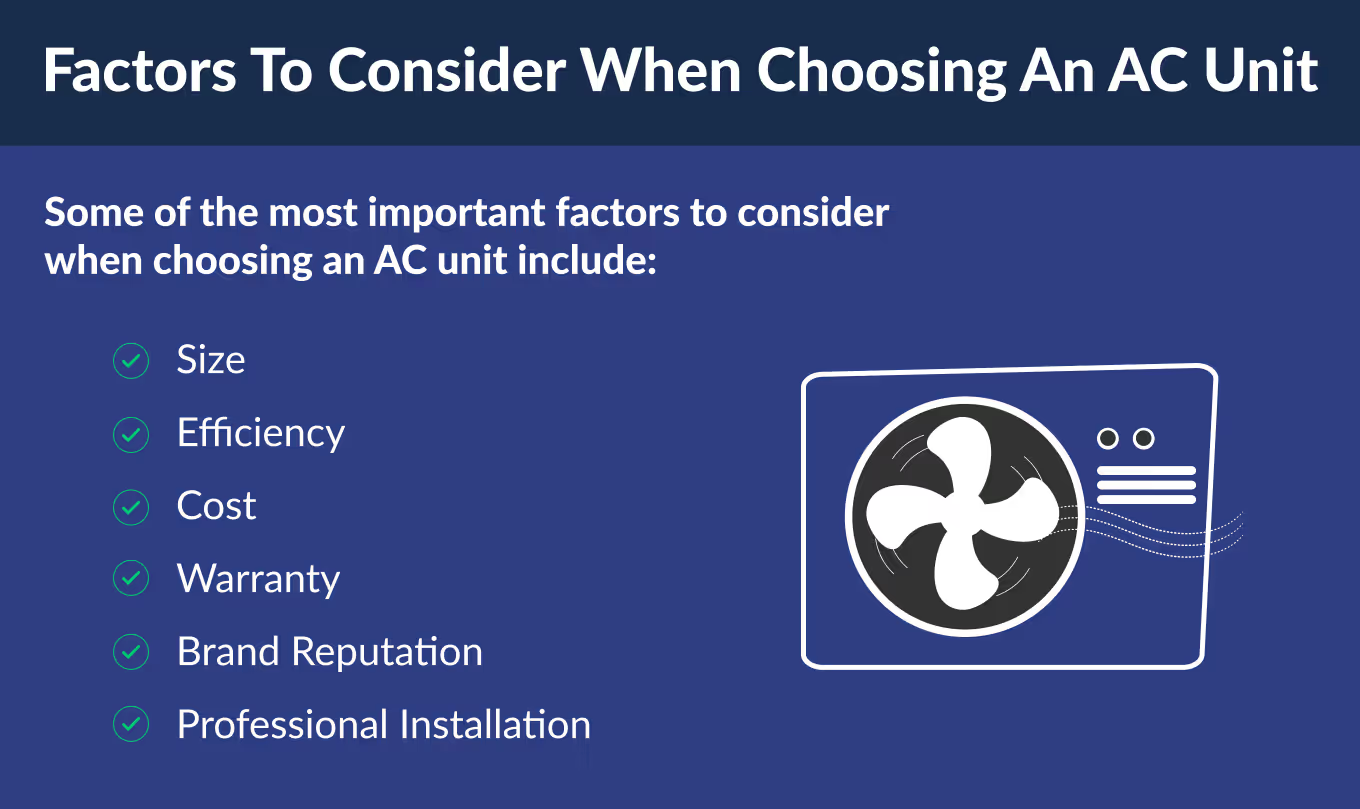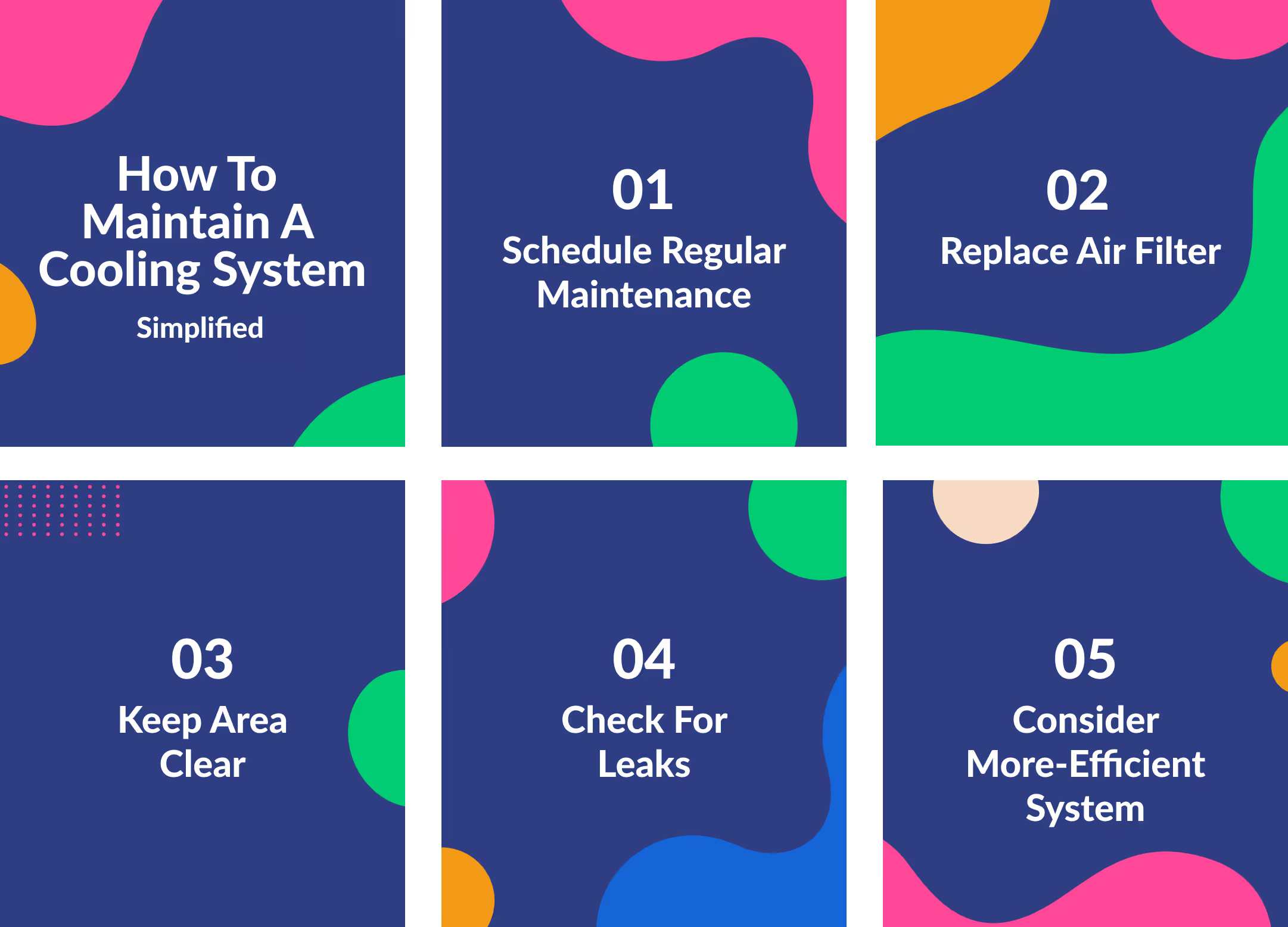As a landlord, it's important to ensure that your rental property is comfortable and healthy for your tenants.
One of the most effective ways to do this is by installing a cooling system.
However, with so many options available, it can be overwhelming to decide which system is best for your property.
In this blog post, we'll go over the different types of cooling systems and help you determine which one is right for you.
To begin, let's go over the importance of having cooling systems in rental properties.
Why Is A Cooling System Important For A Rental Property?
Cooling systems are important for rental properties for a variety of reasons.
First and foremost, they help to ensure the comfort and well-being of tenants.
When the temperature inside a rental property becomes too hot, it can be uncomfortable and even unhealthy for those living there. This is especially true during the summer months, when temperatures can reach extreme levels.
In addition to providing comfort for tenants, cooling systems are also important for maintaining the value and integrity of a rental property. If a property becomes too hot, it can lead to damage to the structure and its contents. For example, high temperatures can cause paint to peel and flooring to warp.
Finally, having an air conditioner in rental units is important because it may actually be legally required. Below, we will discuss some of the laws surrounding AC units and why you should look into your state and local laws.
Laws Surrounding Air Conditioners
In some areas, there may be laws or regulations concerning the type of cooling system that must be installed in rental properties.
For example, some states have laws that require landlords to provide air conditioning in certain circumstances, such as if the temperature inside the building exceeds a certain threshold.
Thus, it's important to be aware of any laws or regulations in your area and make sure that your rental property meets all requirements. To read through all of your state's landlord-tenant laws, be sure to visit DoorLoop's Laws Page.
So, now that we know about the importance of having cool air throughout a rental unit, let's talk about some of the different cooling systems a landlord might choose from.
What Are The Different Cooling Systems?
There are several different types of cooling systems to choose from, each with its own set of benefits and drawbacks. Here are some of the most common types:
Central Air Conditioning
Central air conditioning is the most common type of cooling system in residential buildings. It works by using a central unit to cool and circulate air throughout the building.
Central air conditioning systems are relatively easy to install and maintain, and they are capable of cooling large areas effectively. However, they can be expensive to purchase and operate, and they may not be suitable for small or older buildings.
- Pros: Effective at cooling large areas, easy to install and maintain, can be used in conjunction with other cooling systems
- Cons: Expensive to purchase and operate, may not be suitable for small or older buildings
Ductless Cooling
Ductless cooling systems, also known as mini-split systems, are a good option for properties that don't have ductwork.
They consist of an outdoor unit that is connected to one or more indoor units, which can be mounted on walls or ceilings. Ductless systems are energy efficient, easy to install, and flexible, as they can be used to cool individual rooms or zones.
However, they may not be as effective at cooling large areas as central air conditioning systems.
- Pros: Energy efficient, easy to install, flexible, can be used to cool individual rooms or zones
- Cons: May not be as effective at cooling large areas as central air conditioning systems
Geothermal Cooling
Geothermal cooling systems use the Earth's constant temperature to cool and heat buildings.
They consist of a network of underground pipes that are filled with water or a special fluid. Geothermal systems are highly energy efficient and can save homeowners a significant amount of money on energy costs.
However, they can be expensive to install and may not be suitable for all properties.
- Pros: Highly energy efficient, can save homeowners a significant amount of money on energy costs
- Cons: Expensive to install, may not be suitable for all properties
Whole House Fans
Whole house fans are a simple and cost-effective way to cool a building.
They work by drawing in cool outdoor air and expelling warm indoor air through the attic. Whole house fans are relatively easy to install and operate, and they can be used in conjunction with other cooling systems.
However, they are not as effective at cooling large or poorly insulated buildings, and they may not be suitable for humid climates.
- Pros: Simple and cost-effective, easy to install and operate, can be used in conjunction with other cooling systems
- Cons: Not as effective at cooling large or poorly insulated buildings, may not be suitable for humid climates
Attic Fans
Attic fans are another simple and cost-effective way to cool a building.
They work by drawing in cool outdoor air and expelling hot indoor air through the attic. Attic fans are relatively easy to install and operate, and they can be used in conjunction with other cooling systems.
However, they are not as effective at cooling large or poorly insulated buildings, and they may not be suitable for humid climates.
- Pros: Simple and cost-effective, easy to install and operate, can be used in conjunction with other cooling systems
- Cons: Not as effective at cooling large or poorly insulated buildings, may not be suitable for humid climates
As you can see, there are many different types of air conditioning systems that can be used in rental properties. But, which one should you choose?
Below, we will be going over some of the most important criteria that landlords and property managers should consider when choosing an air conditioning system.
Factors To Consider When Choosing an AC Unit

When shopping for an air conditioner for a rental property, there are several key factors to consider.
Size
Proper sizing is crucial for the efficiency and effectiveness of an air conditioner. An air conditioner that is too small will struggle to cool the space, while one that is too large will waste energy and money. It's important to have a professional perform a load calculation to determine the appropriate size for your rental property.
Efficiency
Look for an air conditioner with a high energy efficiency ratio (EER) or seasonal energy efficiency ratio (SEER). This will help to reduce energy costs and lower your carbon footprint.
Cost
Consider the upfront cost of the air conditioner as well as the ongoing operating costs. While it may be tempting to go with the cheapest option, it's important to consider the long-term costs of an inefficient unit.
Warranty
Look for an air conditioner with a good warranty. This will provide peace of mind and protect your investment in the event of any issues.
Brand reputation
Consider purchasing from a reputable brand with a track record of producing reliable products. This will help to ensure that you're getting a high-quality air conditioner that will last for years to come.
Professional installation
Proper installation is crucial for the performance and efficiency of an air conditioner. Make sure to hire a licensed and experienced professional to install your air conditioner.
After choosing the air conditioning unit, however, it is important to make sure that you know exactly how to maintain the system as well.
How To Maintain The Cooling System In A Rental Property

As a landlord, it's important to stay proactive and take the necessary steps to ensure your cooling system is functioning properly. Here are some best practices for maintaining a cooling system or AC unit in a rental property:
Schedule regular maintenance
It's important to schedule regular maintenance for your cooling system or AC unit to ensure it's functioning properly and efficiently. This can typically be done once per year or every other year, depending on the age and condition of the equipment. During maintenance, a technician will inspect the system, clean it, and make any necessary repairs.
Replace the air filter regularly
The air filter is an important component of the cooling system or AC unit, as it helps to remove dust, dirt, and other contaminants from the air. It's important to replace the air filter every month or two, depending on the specific unit and the level of use.
Keep the area around the unit clear
It's important to keep the area around the cooling system or AC unit clear of debris, such as leaves and grass clippings. This will help to ensure proper airflow and prevent the unit from overheating.
Check for leaks
Cooling systems and AC units can develop leaks over time, which can lead to decreased efficiency and higher energy costs. It's important to check for leaks regularly and repair them as needed to keep the system functioning properly.
Consider upgrading to a more energy-efficient system
If your cooling system or AC unit is older and not as energy efficient, you may want to consider upgrading to a newer, more efficient model. This can help to lower energy costs and provide a more comfortable environment for your tenants.
Bottom Line
In conclusion, choosing a cooling system for a rental property as a landlord is an important decision that requires careful consideration.
By following these tips, you can help to ensure that you choose a cooling system that meets the needs of your rental property and provides a comfortable living environment for your tenants.
































.svg)
.svg)

